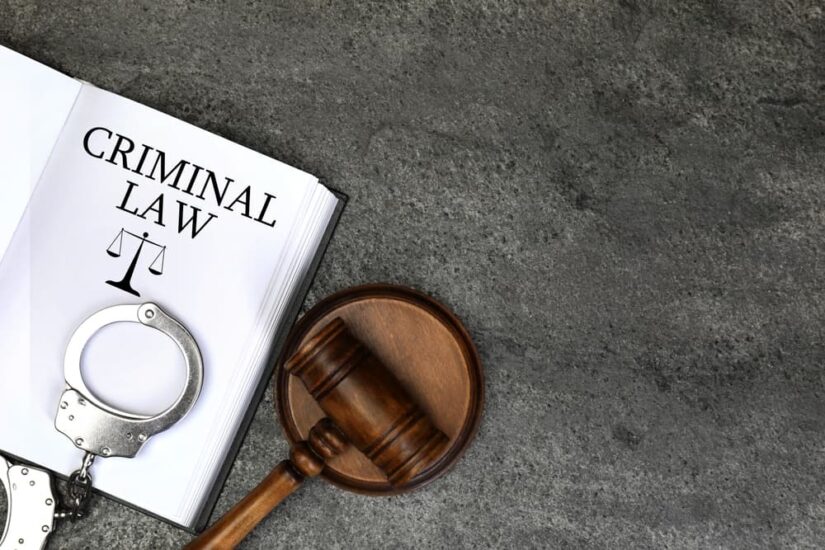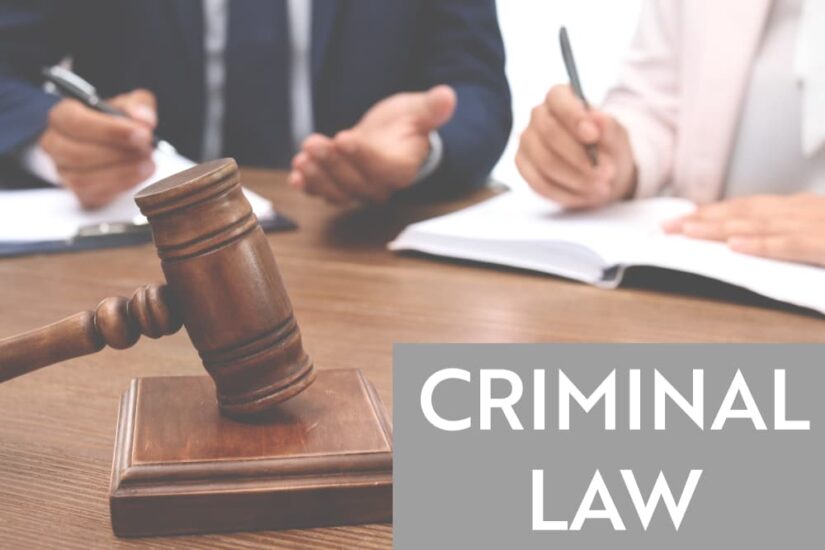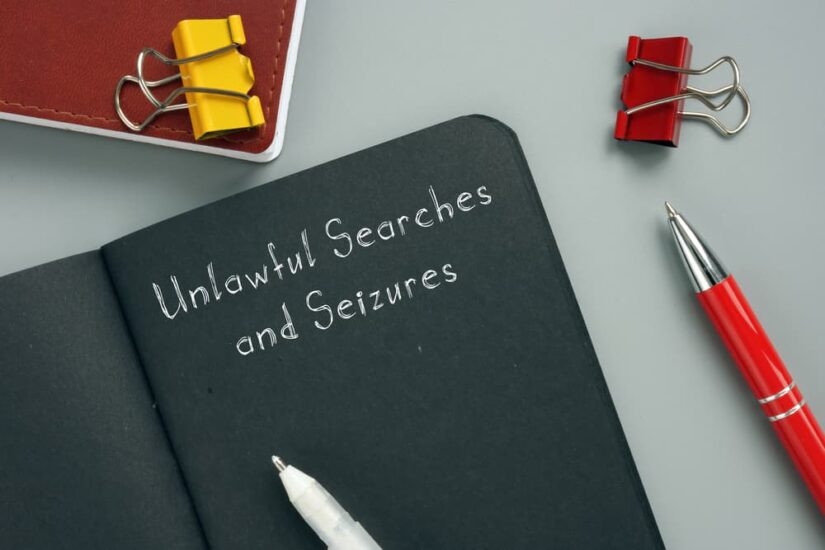Common Defense Strategies

Those facing criminal charges in Miami often worry about the possibility of fines, jail time, or a criminal record. Whether you are dealing with allegations of drug possession, DUI, assault, or another offense, there are multiple strategies attorneys use to challenge the evidence and fight for your rights.
A skilled Miami criminal defense lawyer can help you navigate the criminal justice system, negotiate with prosecutors, and advocate for reduced or dismissed charges. An experienced attorney from Stroleny Law can craft a defense strategy tailored to your case and set the stage for better outcomes and increased peace of mind.
Request a Free Case Evaluation
Florida Criminal Justice System

If you face charges in Miami, the case typically moves through the Eleventh Judicial Circuit Court in Miami-Dade County (if felony or certain misdemeanor charges apply) or a county court for lower-level misdemeanors.
The criminal process starts when law enforcement officers suspect someone of unlawful activity. An arrest is typically based on probable cause that a crime took place. After an arrest, prosecutors review the evidence to decide whether to file formal charges.
In Miami, the State Attorney’s Office usually has a set time frame for filing information (for a felony) or proceeding with a misdemeanor charge. After formal charges are filed, the case moves into pretrial proceedings, where you and your attorney can review evidence, question the legality of the investigation, and craft a strategy to handle each allegation.
The burden of proof rests on prosecutors, who must prove every element of the charge beyond a reasonable doubt. Defense attorneys challenge the prosecution’s evidence by cross-examining witnesses, introducing alternative theories of what happened, and highlighting procedural mistakes made by law enforcement.
Throughout the process, both sides may negotiate a plea agreement to resolve the matter without a trial. However, many defendants prefer to fight in court if they believe the state’s evidence is weak or if a favorable resolution appears possible.
Categories of Criminal Offenses
Florida law categorizes criminal offenses based on severity. Misdemeanors carry lesser penalties than felonies, though they can still have serious repercussions. Some misdemeanor convictions result in up to one year in county jail, fines, and probation.
Felonies come with higher stakes, including the potential for multiple years in state prison, steeper fines, and the possibility of mandatory minimum sentences. Florida also has sentencing guidelines that judges follow, though the actual penalty for each case may vary.
Common Criminal Charges and Penalties in Florida
The Florida Statutes detail the conduct lawmakers consider illegal, possible penalties upon conviction, and sentencing guidelines. Penalties in Florida vary based on the offense, prior convictions, and the specific circumstances surrounding the case.
Below are some of the most common charges filed in Miami and the potential penalties a defendant may face upon conviction.
DUI (Driving Under the Influence)

Driving Under the Influence (DUI) in Florida is charged when alcohol, chemical substances, or controlled substances impair a driver’s normal faculties. A blood alcohol concentration (BAC) of 0.08% or higher can trigger a DUI charge. Penalties might include:
- Fines ranging from a few hundred to several thousand dollars.
- Driver’s license suspension or revocation.
- Probation or mandatory community service.
- Jail time, especially for repeat offenders or those with high BAC levels.
- Court-ordered ignition interlock device installation.
Having a minor in the vehicle or causing property damage can make the consequences more severe. Repeat offenses may lead to felony charges.
Drug Possession and Drug Trafficking
Drug charges in Miami range from simple possession to trafficking. Under Florida law, the substance’s nature and quantity affect the offense’s degree and associated penalties. Common charges include possession of marijuana, cocaine, or heroin, and trafficking.
Potential penalties include incarceration, lengthy probation, fines, and a criminal record that can complicate housing, employment, and licensing. Miami’s proximity to international ports means drug cases involving smuggling or large-scale distribution are prosecuted aggressively.
Assault and Battery
Assault and battery charges involve threats or acts of harm toward another person. In Florida, charges may include simple assault, aggravated assault, simple battery, or aggravated battery.
Convictions can lead to time behind bars, probation, mandatory classes (such as anger management), and restraining orders. Factors like prior criminal history, the presence of weapons, and the severity of injuries influence sentencing.
Theft, Burglary, and Robbery

Theft-related offenses take many forms in Florida:
- Petit Theft: Taking property valued under $750. Usually a misdemeanor.
- Grand Theft: Taking property valued at $750 or more. This is charged as a felony, and the degree depends on the stolen property’s value.
- Burglary: Unlawfully entering a structure with the intent to commit a crime inside, such as theft or another offense.
- Robbery: Taking property directly from someone using force, violence, or intimidation.
Penalties range from misdemeanor probation to years in prison for felonies. Courts examine the value of stolen items, whether violence or weapons were involved, and any harm done to victims.
Domestic Violence
Domestic violence charges involve allegations of assault, battery, stalking, or other harm toward a family or household member. Florida law treats these charges seriously. Potential penalties include:
- Jail or prison time.
- Mandatory completion of a Batterer’s Intervention Program.
- Loss of certain civil rights, such as firearm possession.
- Protective orders that bar contact with the alleged victim.
Prosecutors commonly move forward with domestic violence cases even if the alleged victim changes their statement or asks the court to dismiss the charges.
White-Collar Crimes
White-collar crimes often center on fraud, embezzlement, money laundering, and other financial misconduct. These offenses can be charged under both state and federal law. Penalties can include:
- Long prison sentences in federal or state facilities.
- Steep fines and restitution to victims.
- Asset forfeiture and freezing of bank accounts.
White-collar crimes may involve complex financial records, wire transfers, and digital evidence. Prosecutors often allocate significant resources to build detailed cases, making defense strategies more specialized.
Why a Miami Criminal Defense Lawyer Makes a Difference

In Miami, a city known for its cultural diversity and bustling economy, criminal cases vary widely in complexity. Drug-related offenses might involve multiple defendants or cross-border activities. White-collar crimes might involve complicated financial transactions. Domestic violence cases might hinge on family dynamics and civil protective orders. Each scenario needs a tailored approach.
A defense lawyer’s role includes gathering mitigating evidence and presenting it effectively. If you serve as the family’s primary breadwinner or face personal challenges such as mental health issues, that context may influence how the prosecutor or judge views your case.
By guiding you through each step, your attorney can make sure every opportunity to reduce your exposure to fines, incarceration, or a permanent record is pursued thoroughly.
Common Defense Strategies for Criminal Charges in Florida
Selecting the right defense strategy requires carefully examining the alleged offense, the evidence, and Florida legal precedents. In Miami, lawyers often draw upon various tactics designed to undermine the prosecution’s case, highlight constitutional violations, or present legitimate reasons for a client’s actions. Below are some frequently used approaches.
Lack of Evidence or Burden of Proof
Prosecutors must prove every element of a crime beyond a reasonable doubt. If they fail to present strong evidence, such as physical proof, credible witness testimony, or a logical sequence of events that conclusively shows guilt, a jury cannot return a guilty verdict. A defense lawyer can:
- Cross-examine the prosecution’s witnesses to show inconsistencies or biases.
- Challenge forensic evidence, questioning the chain of custody or reliability of testing methods.
- Argue that the state’s version of events doesn’t match up with the facts.
When prosecutors lack sufficient evidence to meet the high burden of proof, a judge or jury might dismiss the case, or the defense can push for a favorable plea agreement.
Mistaken Identity
In some Miami criminal cases, the accused was in the wrong place at the wrong time or looks similar to the perpetrator. Mistaken identity defenses rely on:
- Video surveillance or photographic evidence placing the defendant elsewhere at the time of the crime.
- Inaccuracies in eyewitness testimony, which can be influenced by poor lighting, stress, or cross-racial identification errors.
- Discrepancies in physical descriptions given by witnesses.
Eyewitness misidentification is a well-known cause of wrongful convictions, so demonstrating flawed identification practices can cast doubt on the state’s entire case.
Alibi

An alibi means the defendant was not at the scene of the alleged crime because they were somewhere else. Evidence that supports an alibi includes:
- Receipts or transaction records that show the defendant’s location at the time.
- Cell phone location data.
- Testimony from friends, family, coworkers, or others who can confirm the defendant’s whereabouts.
An effective alibi can lead prosecutors to reevaluate the case’s strength or drop charges if they realize they cannot prove the defendant’s presence at the crime scene.
Self-Defense
Self-defense covers situations where a person acts to protect themselves or another individual from potential harm. In Florida, self-defense can justify using force if the person reasonably believes they are facing an imminent threat of harm. Key elements include:
- Imminent danger: The threat must be immediate and real.
- Reasonable fear: The person’s perception of danger must be something a similarly situated individual would share.
- Proportionate response: The force used should not be excessive when compared to the threat posed.
If proven, self-defense can negate criminal liability for assaults, batteries, and sometimes even homicide. Jurors will often examine whether the defendant tried to avoid or de-escalate the situation before using force.
Stand Your Ground Law in Florida
Florida’s Stand Your Ground law expands on the traditional self-defense doctrine by removing the duty to retreat. Under this law, a person who is lawfully present at a location and is not engaged in criminal activity can meet force with force if they reasonably believe such force is necessary to prevent death, great bodily harm, or the commission of a forcible felony. Key points:
- The person does not have to retreat, even if there is a safe way out.
- The burden can shift to the prosecution to show the force was not justified.
Judges can hold a pretrial immunity hearing at which a defendant can claim Stand Your Ground protection. If successful, this could potentially result in the case being dismissed. This statute often arises in Miami cases involving shootings or other violent encounters, especially if they happen at or near someone’s home, vehicle, or business.
Unlawful Search and Seizure

Evidence obtained through unconstitutional means may be thrown out under the exclusionary rule. If police conduct an illegal search or seize evidence without a valid warrant (or an applicable exception, such as exigent circumstances), the defense can file a motion to suppress that evidence. Examples include:
- No probable cause: Officers lacked a legitimate reason to stop, search, or detain.
- Invalid warrant: A judge’s warrant might have errors, or officers could exceed its scope.
- Warrantless searches that do not fit exceptions like consent, incident to arrest, or plain view.
The prosecution may struggle to prove the case if critical evidence is suppressed. This strategy can lead to reduced charges or dismissal.
Miranda Rights Violations
When law enforcement officers arrest someone, they must inform the individual of their right to remain silent and their right to an attorney if they intend to question them about the crime. This is known as Miranda warnings. If officers fail to properly advise suspects of their rights, any statements or confessions obtained could be ruled inadmissible at trial. Challenging the admissibility of incriminating statements can weaken the prosecution’s case, sometimes significantly.
Entrapment
Entrapment occurs when police or government agents induce someone to commit a crime they would not otherwise have committed. Florida’s entrapment laws consider whether law enforcement used tactics beyond a typical sting or undercover operation. Proving entrapment can be challenging, but it can be a complete defense if a jury agrees that the government manufactured the crime.
Duress or Coercion
This defense applies when a defendant commits a criminal act under the threat of severe injury or death. The key idea is that the person’s free will was overwhelmed by the threat, leaving them no reasonable alternative but to comply.
A common example might involve someone forced to drive a getaway car at gunpoint. If a jury believes the defendant acted under duress, the charges may be reduced or dismissed.
Insanity and Mental Health Defenses
Florida law allows for an insanity defense when the defendant has a severe mental illness or defect that prevents them from understanding their actions or appreciating their wrongfulness. Proving insanity often requires:
- Medical records detailing the individual’s psychiatric history.
- Expert testimony from psychologists or psychiatrists.
- Evidence of the defendant’s mental state before, during, and after the offense.
A successful insanity defense can lead to a verdict of not guilty by reason of insanity, which often results in commitment to a treatment facility rather than a traditional prison sentence. Other mental health defenses might reduce charges if the defendant’s condition contributed to impaired judgment or an inability to form specific intent.
Talk to Stroleny Law for a Tailored Criminal Defense Strategy
Defending against criminal charges in Miami involves a mix of knowledge, skill, and strategy. From DUIs and drug offenses to assault, theft, and white-collar crimes, every charge brings unique penalties and legal nuances under Florida law.
While the threat of incarceration, hefty fines, or a lifelong criminal record may seem overwhelming, there are proven defense strategies that can tilt the balance in your favor. A skilled criminal defense lawyer can investigate your case, identify flaws in the prosecution’s evidence, and advocate for a better outcome—whether that means reduced charges, a dismissal, or a not-guilty verdict at trial.
At Stroleny Law, we serve the Miami community by defending clients with compassion and tenacity. Every case is approached with fresh eyes and a genuine commitment to quality representation. If you find yourself or a loved one caught in the uncertainty of a criminal proceeding, reach out to schedule a consultation.
We stand ready to help you protect your freedom and your future. Call our Miami office at 305-615-1285 or contact us online to get started.
